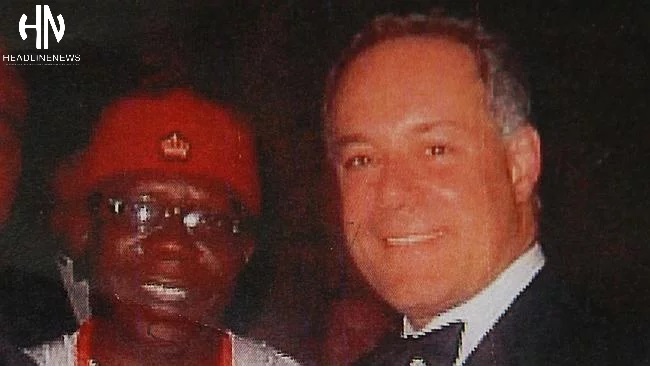For years, he was seen as a symbol of Nigerian pride abroad, a cultural leader in the heart of Australia, crowned as the Eze Ndigbo, a title meant to represent honour, tradition, and community unity. But behind the ceremonial robes and handshakes with dignitaries, prosecutors say he was orchestrating one of the most lucrative and far-reaching cocaine trafficking operations Australia has ever seen.
This is the story of how a respected community figure turned his royal office into a shield for organized crime—and how the web of deceit he spun stretched from South American jungles to the bustling streets of Sydney, London, and New York.

The Billion-Dollar Business Hidden in Plain Sight
Investigators say the cartel’s business model was as ruthless as it was effective. Cocaine bought for a mere $1,500 a kilo in South America was landing in Western markets for $66,000, a 4,000% profit margin. The numbers were so obscene they made conventional businesses look like charity work.
Police allege that these profits didn’t just line pockets; they became weapons. Legitimate-looking shops, from cement depots to electronics stalls, were used to launder drug money while crushing competitors. Selling at cost price or even at a loss was not bad business; it was a deliberate strategy to wipe out competition.
One veteran trader in Sydney told this reporter, “We couldn’t compete. We slashed prices until we had no profit left, but they kept going. Now I understand why—it wasn’t business; it was laundering.”

A Parallel Economy Built on Narcotics
The investigation revealed a financial ecosystem sustained almost entirely by cocaine sales. Trusted members of the ethnic network received low-interest loans, far cheaper than any bank would offer, directly funded by drug profits. These loans were used to restock shelves, expand stores, and entrench the cartel’s influence in nearly every product line in which they traded.
Publicly, the group celebrated its “business acumen” and claimed to have a Midas touch. Privately, they were using narco-capital to dictate prices, seize market share, and turn entire sectors into monopolies under their control.

The Fall of a King
Australian police, working with international agencies, slowly closed the net. Surveillance, intercepted communications, and financial tracking exposed a network so deeply embedded in the community that many locals didn’t realise their “market leaders” were also key players in a transnational crime syndicate.
When the verdict came, the court didn’t just sentence a man; it dismantled a façade. The Eze Ndigbo of Australia was no longer a royal figure; he was a convicted drug trafficker facing years behind bars.

A Warning for the Future
Authorities say the case is a wake-up call for both law enforcement and communities.
“This was not just about drugs; it was about economic warfare,” an investigator told this publication. “These criminal enterprises don’t just poison people, they poison markets, destroy livelihoods, and erode trust in legitimate commerce.”
As the convicted king awaits his sentence, the community he once represented is left to grapple with an uncomfortable truth: the man they trusted to defend their heritage was, all along, undermining their future.




